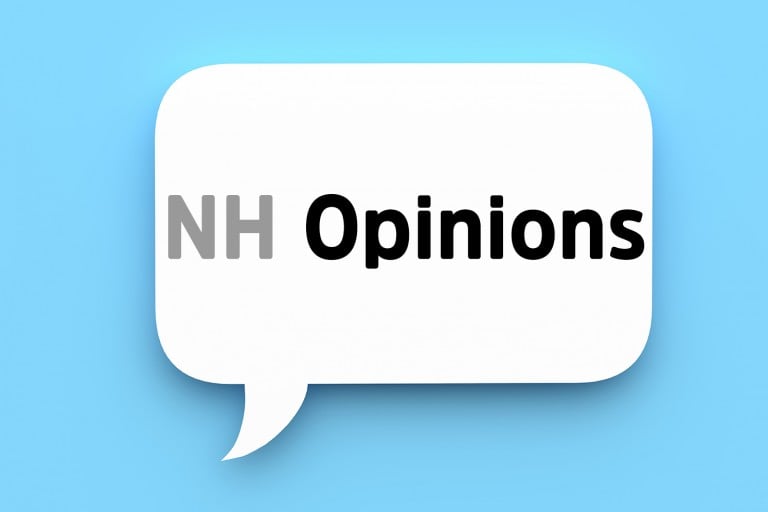(Opinion) Disappointed in Easterseals’ leadership: veteran campus reeks of mismanagement
Many in New Hampshire’s veteran community are deeply troubled by what has unfolded at the Easterseals Military and Veterans Campus in Franklin

Every year, America’s seniors have the choice between traditional Medicare and privately sponsored Medicare Advantage health plans. This year, a majority of them chose to enroll in a Medicare Advantage plan, which provides access to more benefits and more care, when and where they need it — making it easier to stay healthy. Those in a UnitedHealthcare plan can expect to hear from a licensed and trained nurse practitioner or physician assistant, looking to schedule an in-house visit. No need to leave home. We come to you.
These services — provided at zero cost to members — are not offered under traditional Medicare. They are a part of our HouseCalls program, which has a 99% satisfaction rate among participants, and delivers demonstrably better clinical outcomes for patients and lower costs for taxpayers. Recent media coverage has portrayed these clinical encounters as little more than a revenue grab, which couldn’t be further from the truth.
HouseCalls — and other in-home care programs like it — represent exactly the kind of care delivery innovation health policy experts sought to incentivize when they created the Medicare Advantage program in the late 1990s. Developed as an alternative to traditional Medicare — which lacks coordination and a needed focus on prevention and early intervention — Medicare Advantage rewards payers and clinicians for providing holistic care which is designed to keep people healthy and well. This model encourages engaging patients when they are healthy instead of waiting for them to get sick — often avoiding more expensive and more intensive acute care.
Each HouseCall is a thorough clinical visit, modeled after the Centers for Medicare & Medicaid Services’ best practices for inhome care. Visits lasts about twice as long as a traditional primary care office visit and include a review of the patient’s physical and mental health history, current medical conditions and medications, as well as a comprehensive physical examination with additional tests and screenings as needed.
By visiting patients in their home, UnitedHealthcare’s clinicians can better understand the factors that might be impacting a person’s health — from medication adherence to lack of healthy foods and reliable transportation. Each year, these clinicians make hundreds of thousands of referrals to social workers and other community resources to address these external issues and help connect people with the services they need.
While this care is high-quality and comprehensive, HouseCalls are intended to complement primary care, not replace it. HouseCalls clinicians often interact with a patient’s primary care provider before the visit takes place. At the end of the visit, clinicians put together a personalized checklist of items patients can discuss with their doctors. We send their doctor a postvisit report documenting what was found, including test results, diagnoses, referrals and recommendations. If a patient does not have a primary care doctor, our clinicians can help them find one. Within 90 days, roughly three-quarters of people follow up with another medical appointment.
Last year this program helped people close more than 3 million gaps in care through preventive measures including wellness visits, screenings and vaccinations. It achieved significant improvement in outcomes, especially among those with common conditions linked to higher morbidity and health care consumption. People with coronary artery disease, diabetes, hypertension and depression experience up to 5.2% fewer inpatient stays and up to 4.4% fewer emergency room visits in the year following a HouseCalls visit. People with coronary artery disease who received a visit also saw a decrease in major adverse cardiovascular events afterward.
HouseCalls is especially effective in reaching people struggling with physical and financial barriers to accessing care, who rely on both Medicare and Medicaid. UnitedHealthcare serves more patients with these complex needs than any other commercial health plan and is proud to do so. In 2024 alone, we completed more than 575,000 HouseCalls visits in low-income communities and more than 539,000 across more than 1,600 rural communities.
These results directly contradict recent claims. The majority of diagnoses added during a HouseCalls visit have no impact on reimbursement. In the instances where diagnoses are added, there are robust procedures in place to ensure accuracy, including reviews of certain unique and new diagnoses. We train our clinicians to exercise their independent clinical judgment. And we apply multiple layers of quality assurance processes to help ensure the accuracy of the diagnoses. If there is insufficient support for a diagnosis, it’s taken out. Government audits and other evidence also confirm the accuracy of our submissions, and we have advocated that the government conduct audits every year for every health plan.
At a time when Americans are clamoring for more from their health care, Medicare Advantage — thanks in part to services like HouseCalls — is an exceedingly rare example of a program that started as an alternative and has become the norm. The share of seniors selecting Medicare Advantage plans grew from 13% in 2003 to more than 50% in 2025.
Seniors and taxpayers recognize extraordinary value when they see it. Medicare Advantage makes benefits like affordable medical and pharmacy copays, limits on out-of-pocket costs, healthy food, transportation, vision, hearing or dental coverage more accessible — at a cost that’s about $2,500 less than traditional Medicare annually.
To be sure, there is no singular solution for every flaw in our health system.
But the results we are proudly delivering with HouseCalls and Medicare Advantage clearly demonstrate that better outcomes can be achieved by spending more time with patients in their homes — where they want to be.
Wyatt Decker, MD, is the chief physician for UnitedHealth Group.